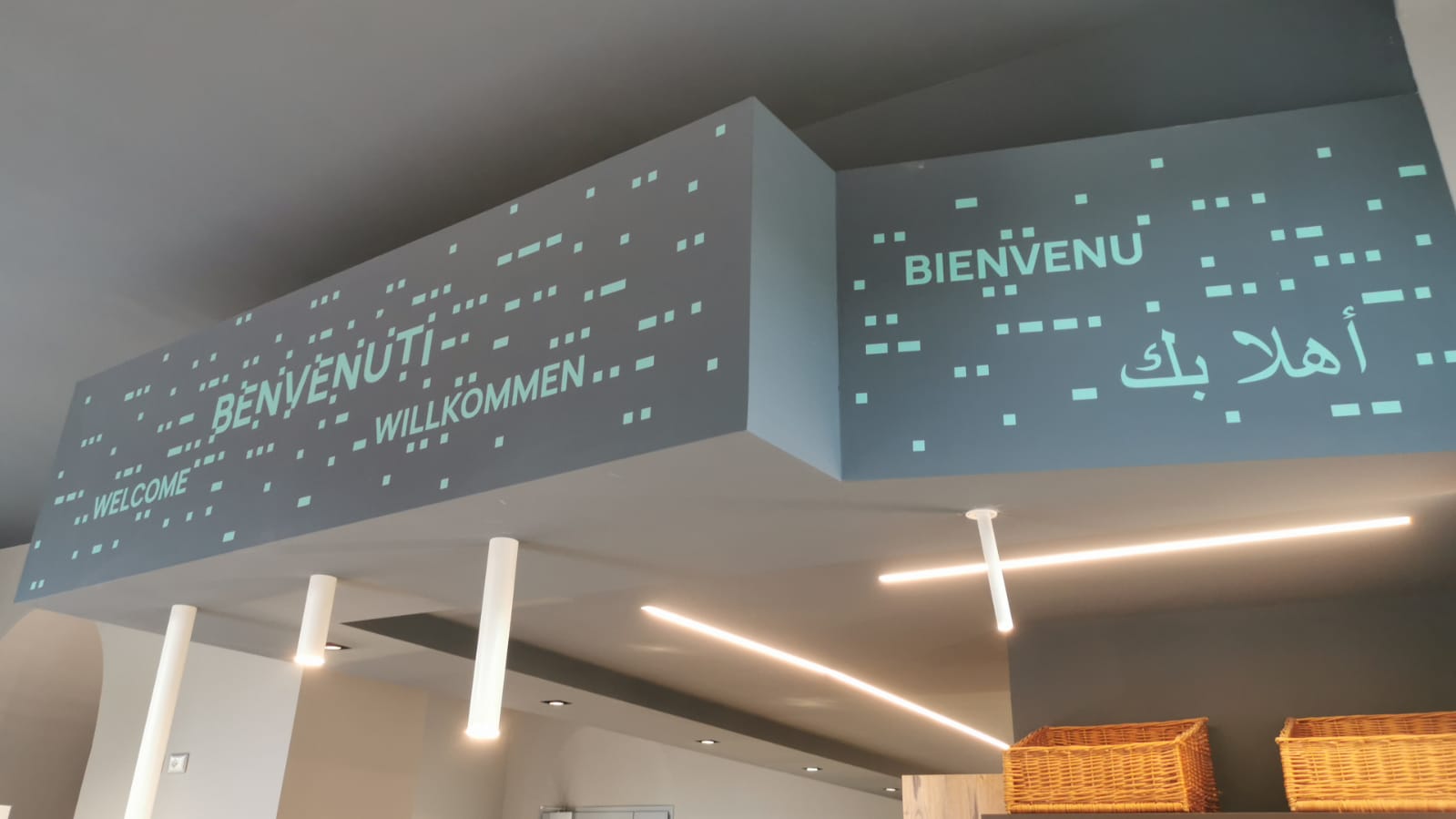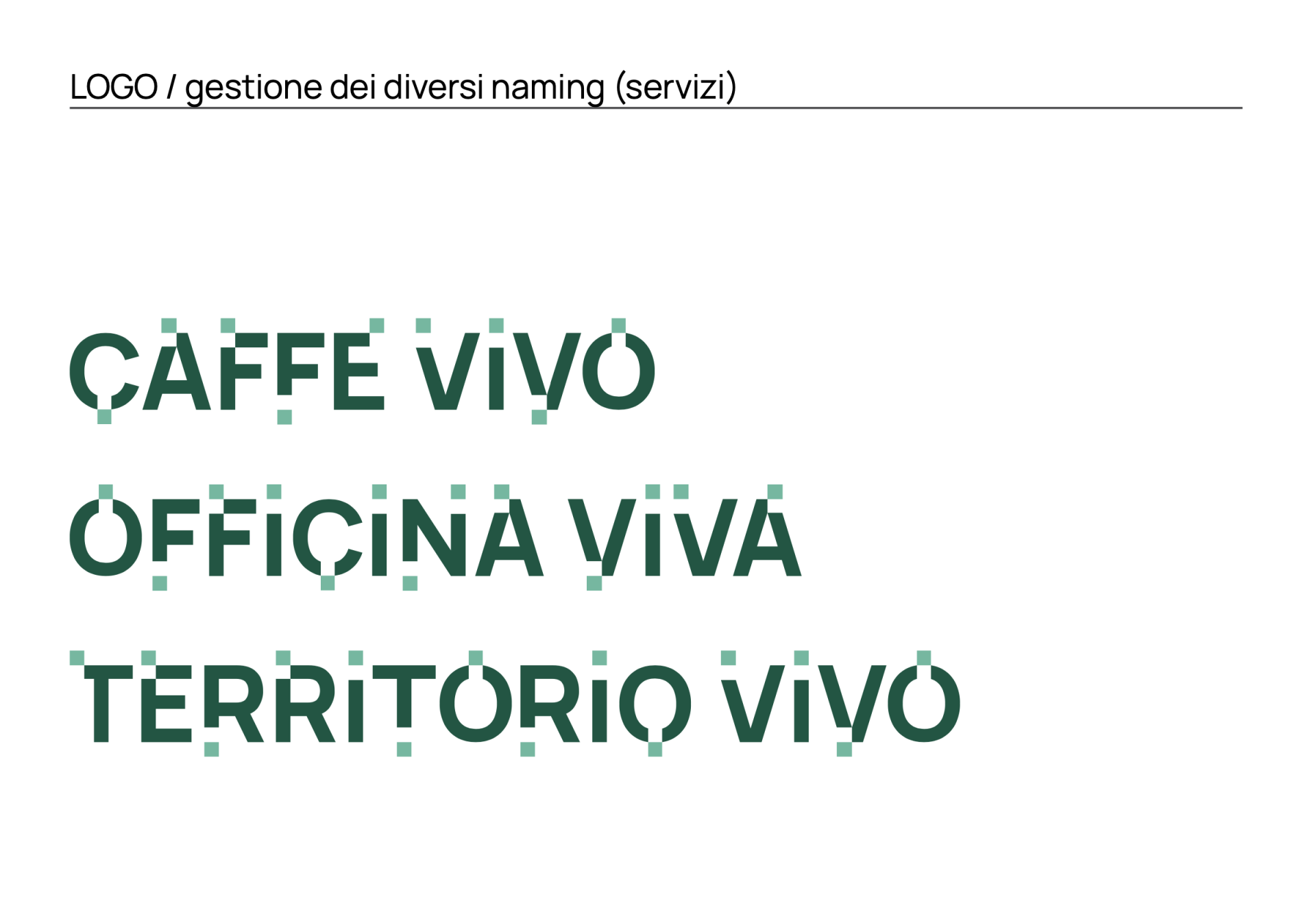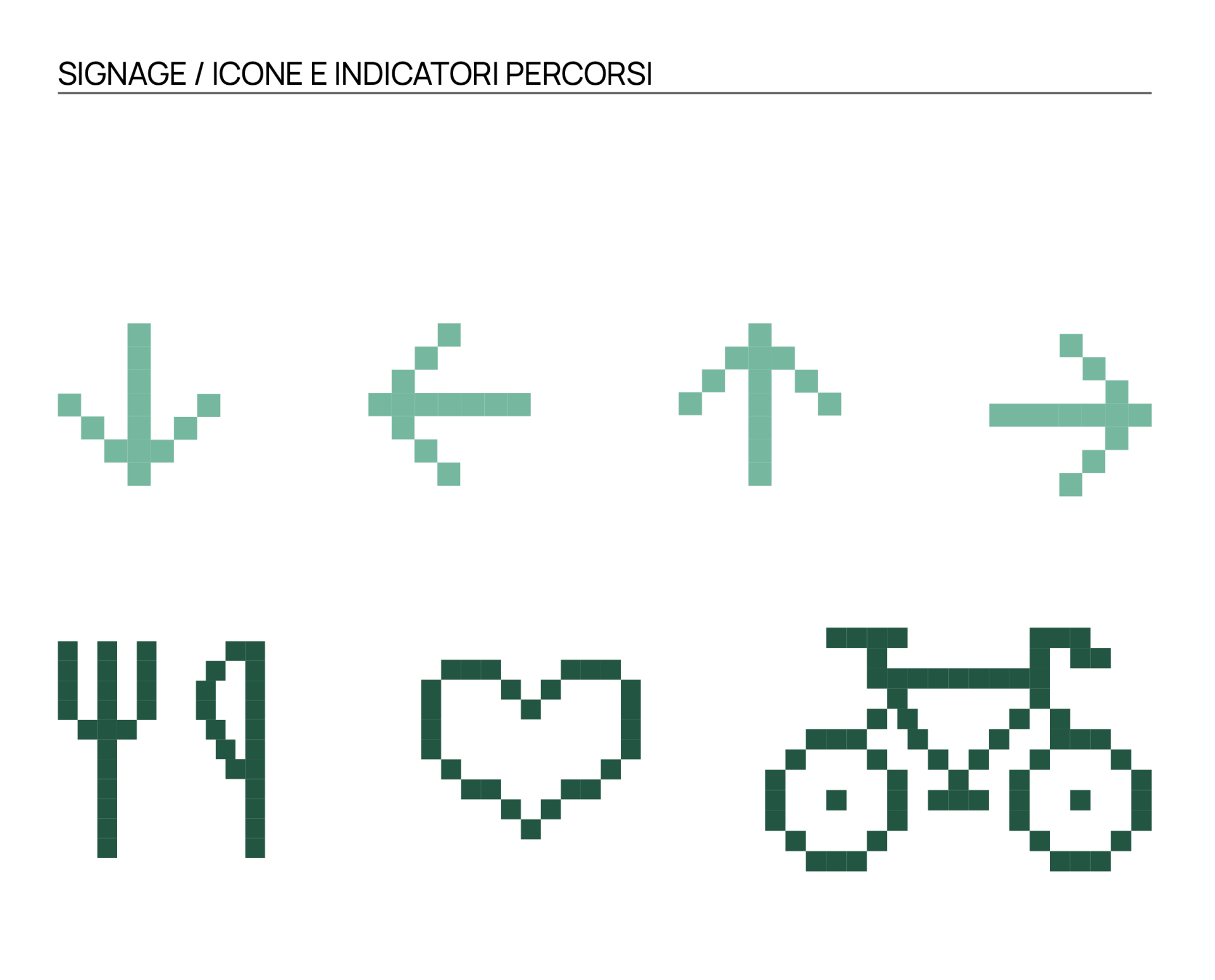BINARIO VIVO
Basic information
Project Title
Full project title
Category
Project Description
Binario Vivo was created with the aim of redeveloping the area of the Cernusco-Merate railway station in order to create a new landmark for the local community and the tourist flow. Through co-design processes, a strong link has been created between the urban environment and the natural ecosystems that surround it.
Geographical Scope
Project Region
Urban or rural issues
Physical or other transformations
EU Programme or fund
Which funds
Description of the project
Summary
The Cernusco Lombardone-Merate train station is a place where 2,000 people transit every day, experiencing problems of parking, traffic, and pollution. In 2015 a re-development process began: the Municipality, with Rete Ferroviaria Italiana, transformed the old freight depot into a bicycle parking station. Since 2017, the space has been managed by Paso Lavoro social enterprise which automated the access, guaranteed the presence of “a guardian” with the double mission to employ individuals belonging to weaker social groups. Thus giving opportunities for personal and professional growth.
Due to the positive feedback, a process of further investment has begun on the entire complex of the Station, with the aim of change the area into a pivot-point, to and from the context. A special place dedicated to sustainable fruition and useful to provide job opportunities for disabled and disadvantaged people. Thanks to a contract between the Municipality and Paso Lavoro, the old waiting rooms of the station were brought back to the community as a meeting place for cultural activities, oriented towards social cohesion.
Binario Vivo it’s the new brand of the place. It’s dedicated to the sustainable mobility, slow- and cycle-tourism, which becomes a new business branch where disabled people and trainees find work thanks to the "job in situation" program, led by the Province of Lecco.
The services offered are: INFO POINT, an information corner on cycle-tourism in the surrounding green areas, promoting their “correct” and respectful use (particularly Curone Regional Park); it's a space open to new proposals from the community; BICYCLE REPAIR STATION, where training courses are organized; BICYCLE AND E-BIKE RENTAL, to reach the nearby natural parks and greenways; COFFEE SHOP, which is also a place to host events and promote the territory, sustainable tourism, the solidarity economy, and the "short production chain" of the local products.
Key objectives for sustainability
In order to improve the quality of life and health of the community, especially in a heavily built-up area such as the Brianza and Lecco province is, it is essential to be able to leverage the potential and resources that the area offers. Stimulating a sustainable use of the territory represents a valid answer to the problem of pollution and traffic congestion, allows to enhance the local naturalistic heritage and the development of new business initiatives, as well as allowing to involve the whole community in the care and in the protection of their own places. The project revolves around the role and opportunities offered by the Cernusco Lombardone cycling station. Binario Vivo aims to spread knowledge and expand the possibilities of use of this area, going beyond the bike storage function, but making the cycling station a point of reference in terms of sustainable mobility for all the municipalities in the surroundings.
In this sense, a touristic system has developed, as an answer to the different needs of visitors; it guarantees the protection of the cultural and natural heritage, avoiding excessive pressure on ecosystems. To enhance these choices, the dining area sees the presence of selected local products and a km0 fruit and vegetable production, in a circular economy perspective. In addition to an experimental bike-sharing service, the bike workshop promotes reuse and recovery actions.
Key objectives for aesthetics and quality
The aesthetics of the project revolves around the concept of "alive" the naming Binario Vivo has to be understood as renewed rail, vital again, lively and ready to be “lived” by the Community. These qualities have been translated, thanks to the support of Studio Shift, into an urban and social redevelopment dedicated to the territory, its inhabitants, and all those who attend it. The project changes the paradigm of the station as a place of passage, opening up to a wide and heterogeneous public, with the aim of creating opportunities for meeting, knowledge exchange, and co-design; combining the stop with a renewed concept of tourism, sustainability, and inclusiveness.
Stationarity and movement represent a dualism, reflected in the oxymoron of the brand identity: on one hand the static and cold aesthetics of the railway track; on the other the vitality of Living Nature and its colors. It is from here that in the visual telling of the project, from the track, literally, small elements bud in chromatic harmony: the brand identity is therefore dynamized with a generative movement that aims to simulate seeds, drops, particles in motion. The concept of continuity is the bond that allows these opposing peculiarities to coexist and it is expressed through a symbology that creates a dialogue and coherently connects internal and external spaces. This stylistic figure is idealized in every element, from the logo to the signage, even supported by an icon battery
Key objectives for inclusion
The project was developed through co-design actions and direct involvement of stakeholders and users of the offered services. First of all, the inhabitants of Cernusco Lombardone and neighboring municipalities (about 30,000 people), are encouraged to improve the quality of their life and the tourist-environmental enhancement of the area. In this sense, commuters can also benefit from the new services activated at the cycling station and transports with a low environmental impact.
Binario Vivo project promotes the job inclusion of individuals in a condition of vulnerability, in order to strengthen their autonomy and encourage human and professional qualification; this is Paso Lavoro's primary objective.
The coffee shop, info point, and workshop cycle employ personnel belonging to the weaker groups (disabled and disadvantaged people). A work project is launched for these people, who are followed by social services, professional educators, and the staff of the Paso Lavoro Cooperative, which allows them to provide, at the end of the experience, a significant increase in their knowledge and make them even more aware of their work, soft- and social- skills.
The project includes also a “listening and orientation desk” that is instead aimed at students at the end of the schooling and young people under 29 looking for their first job or in transition. A place in which one can obtain information, assistance on the active job search; draw up a curriculum; have school and university orientation; to find chances for free time, volunteering; to find information about local events, international mobility, and youth entrepreneurship.
Results in relation to category
The first impact from the project concerns the job placements: since October 2021, with the opening of the bar and info-point, 1 disabled person has been hired and 5 young people belonging to "protected people categories" (reported by the Disability Placement of the Province of Lecco) are carrying out a job insertion path through an internship. Today, 2 of these young people have been hired by the Cooperative, having already achieved the expected results from their path.
Another important result is that approximately 100 people of different categories are using the offered services, giving evidence to the concept of richness in diversity. They are not only commuters but above all the inhabitants of the municipalities: they use the spaces during the week as a meeting place or as a co-working. During the weekend, the space is used as a departure or arrival point for trips and walks inside the Curone Regional Park: many of the visitors arrive by train.
Agreements and discounts have also been signed to reinforce the use of public transportation: for all those who show up with the train seasonal ticket, there are many reduced prices for local theater, Due Punti company, or the web radio Hey Dj, based in Merate, created and managed by a disabled boy
How Citizens benefit
The project is aimed at a multiplicity of actors present in the area who, in addition to directly benefiting from the actions, collaborate in the realization of the path as a whole. The strategy adopted is based on the concept of sharing the activities: only through such a kind of shared management has been possible to give life to a process of change capable of providing effective answers at medium-long term. The specific collaboration with Studio Shift helped to nurture this citizen and stakeholders engagement, directly in some design phase: the first and most significant one has been the project's brand creation, which included both the reflections around a semantics cloud able to express vision and values of the whole intervention (towards the definition of the naming) and some exchange sessions about visual identity.
By involving institutions and citizens over time it has been possible to create a series of concrete actions for the users’ benefit. In particular:
- the commuters' association was involved to design a packed lunch service that one can collect in the morning, before going to work; it consists of a selection of seasonal local products (or derivative), produced by other social cooperatives;
- an agreement with Trenord has been activated: holders of the "Io viaggio" card are entitled to discounts on drinks inside the coffee shop;
- an agreement with a local theater association (Merate) provides subscribers with discounts on drinks and the purchase of products;
- since February a small fruit and vegetable market has been set up (with products from the Paso Lavoro Cooperative's garden) next to the bar;
- a “free” desk for orienting young people about jobs is open 2 days a week;
- new activities are planned to make the station a meeting point for all age groups of the population, which want to animate the area;
- some differentiated tour itineraries have been developed, using trains combined with bicycle and/or walking itineraries.
Physical or other transformations
Innovative character
An urban regeneration process cannot ignore the activation of a multi-level experience dedicated to the community. The architectural project becomes the ideal environment for the promotion of a new vision linked to the territory and, as a consequence, to new possibilities of its use. The effectiveness of this path within Binario Vivo was defined by a user-generated approach which, starting from the bottom, managed to involve both project stakeholders and residents. This active process of co-planning served above all to get in touch with the real needs of the population and people who habitually frequent these areas.
Secondly, an in-depth investigation of the context, in collaboration with the entities, institutions, and administrations that characterize it, has allowed us to approach with a critical look at its social and environmental fragility. From this basis, the contents of the project were processed and reworked in order to find a concrete solution to the problem, which was summarized in a custom, sustainable, and scalable territorial development model, which immediately benefits the community and the territory in which it takes place.
Learning transferred to other parties
Binario Vivo represents a replicable model for the sustainable regeneration of the train stations and new uses of green surroundings.
A Station "as a HUB" where, alongside new models of tourism and protection of territory, to discuss how to continue improving with concrete proposals and new prototypes and ideas to provide a stimulus for the development of new job opportunities inside of the huge green economy paradigm. A “green HUB" which both collects input from the community and is responsible for stimulating and guiding citizens, organizations, and associations in identifying new ideas and possibilities for the enhancement of the territory considering the general well-being of the local community.
We collected useful feedback from the community, not only in environmental terms but also from an economic and social point of view. The most appreciated space is the BICYCLE REPAIR STATION: this space quickly became a point of reference for younger people offering training and tutoring tools, so that they can increase their skills and initiate employment paths that focus -also- on the well-being of the community and the protection of the environment. It is also a simple and effective example of circular economy. Even the experience of production paths, through the support of the local fab lab, is an opportunity in this sense: young makers act new possibilities and developments for innovative solutions in the field of sustainability, through the application of new languages, digital design, and manufacturing tools, common to the new generations.
The work orientation space, therefore, contributes to bringing young people closer to the project themes and to exploring possible/future employment opportunities in the green field.



